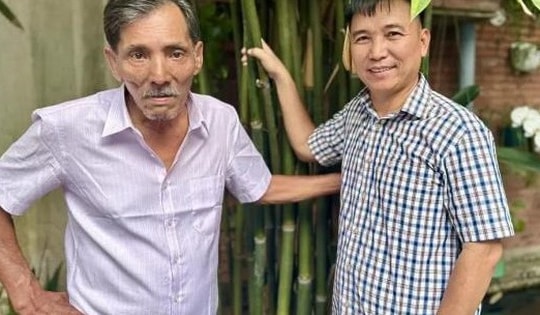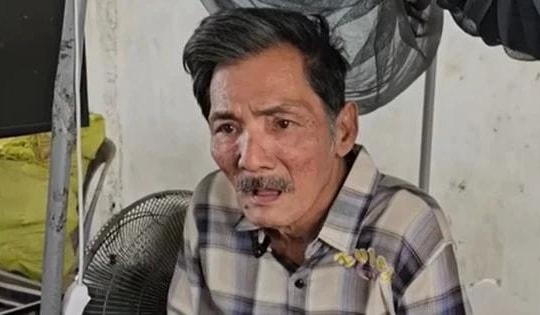Comrade To Hieu, a typical senior leader of the Party and the Vietnamese Revolution
(Baonghean.vn) - Comrade To Hieu joined the revolution when he was still a high school student. To Hieu officially became a member of the Indochinese Communist Party at the age of 20.
Comrade To Hieu was born in 1912, in Xuan Cau village, Nghia Tru commune, Van Giang district, Hung Yen province - a land rich in cultural traditions, the homeland of the Bai Say uprising famous throughout the country and was raised in a disciplined family. At the age of 14, while studying at the Franco-Vietnamese School in Hai Duong town, Comrade To Hieu participated in the strike movement demanding a memorial service for patriot Phan Chau Trinh. Because of this activity, despite being a very good student, in 1926, To Hieu was forced to drop out of school. Leaving school with a patriotic spirit deeply imprinted in To Hieu's spirit, this was also the step he took on the revolutionary path.
From 1927 to 1929, Comrade To Hieu went to Hanoi to study Primary College at Tri Tri School. During this time, he continued to participate in revolutionary activities. Through trials, he was admitted to the Student Union, an organization organized by the Vietnam Revolutionary Youth Association in Hanoi.
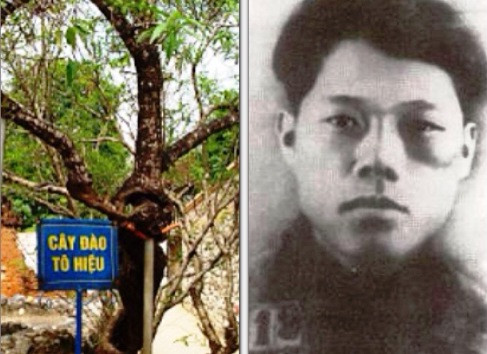 |
| Revolutionary To Hieu and the peach tree planted by martyrs at Son La Prison. Photo: Document |
In 1930, after the failure of the Yen Bai uprising of the Vietnam Nationalist Party, the French colonialists terrorized and brutally suppressed all patriotic movements. Many revolutionary cadres were arrested. Comrade To Hieu was closely monitored by secret police and followed his brother To Chan, a leader of the Vietnam Nationalist Party at that time, to the South to work. After the plan to assassinate the two French and Dutch Governors failed, To Hieu, To Chan and several others were arrested by the French colonialists. Comrade To Hieu, who was only 18 years old at the time, was sentenced to "4 years in prison and a fine of 50 dong for joining a secret organization and committing acts of violence", and exiled to Con Dao.
At Con Dao prison, comrade To Hieu gradually paid attention to learning about the prisoners and expanding his relationships. Every day, under the direct guidance of To Chan, To Hieu became closer and learned from the communist prisoners, gradually participating in activities in prison. Knowing that To Hieu was still very young, had a lot of potential, had many qualities of a steadfast communist, and when released from prison would definitely contribute significantly to building and developing the revolutionary movement among the masses of our Party, older comrades who had been active for a long time and had more experience such as Ngo Gia Tu, Ton Duc Thang... spent a lot of time and effort to train comrade To Hieu in the Marxist-Leninist theory system, the Party's political platform, experience in mobilizing the masses of workers, farmers, youth, women, soldiers, secret work experience... Under the guidance of communist party members, To Hieu actively participated in activities in prison and constantly studied and trained himself. Also here, To Hieu officially became a member of the Indochinese Communist Party at the age of 20.
In 1934, after finishing his prison term in Con Dao, the French colonialists brought him back to his hometown of Xuan Cau, Van Giang under house arrest. Despite being under house arrest, he refused to submit. He studied the situation and built a revolutionary movement in his hometown, while finding ways to overcome the enemy's siege and blockade to contact the Party.
In 1936, comrade To Hieu, along with comrades Nguyen Van Cu, Ha Ba Cang (Hoang Quoc Viet), Dang Xuan Khu (Truong Chinh) and many other comrades, rebuilt the Party organization system and directed the mass movement for people's livelihood and democracy in Hanoi and surrounding areas. In mid-May 1937, the Provisional Northern Regional Party Committee was established, and comrade To Hieu was elected as a member of the Standing Committee of the Regional Party Committee. At the end of November 1937, he was appointed as a member of the Standing Committee of the Northern - North Central Regional Party Committee. From the end of 1937 to the beginning of 1938, he made many trips to Bac Ninh, Hung Yen, and Hai Duong to take care of the work of building revolutionary bases and building Party organizations in these localities.
In February 1939, he was assigned by the Regional Party Committee to be in charge of the Zone B Party Committee and to be the Secretary of the Hai Phong City Party Committee. He actively directed and promoted the revolutionary movement here, causing strong echoes at home and abroad. On December 1, 1939, comrade To Hieu went to the printing facility in the Thuong Ly worker village (Hai Phong) to inspect the printing of propaganda leaflets in preparation for the new struggle and was captured by the enemy. Although the enemy brutally tortured and tried to bribe him, they could not shake comrade To Hieu's steadfast revolutionary will.
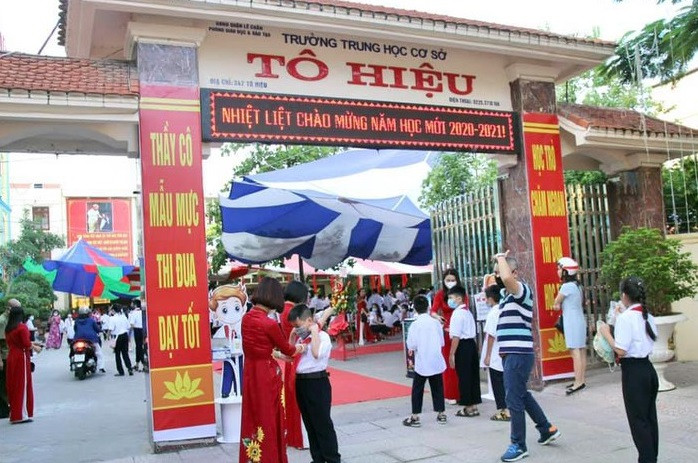 |
| To Hieu High School in Hai Phong. Photo: giaoduc.net.vn |
At the end of December 1939, they sentenced him to 5 years in prison and in early 1940 exiled him to Son La Prison. Here, he actively participated in organizing communist soldiers to fight against the imperialist prison regime. In mid-February 1940, the Son La Prison Party Cell was established, comrade To Hieu was appointed as a Party Cell member and Party Cell Leader. In May 1940, a secret Party Cell Congress was convened, deciding on specific policies and tasks, comrade To Hieu was elected as Secretary of the Prison Party Cell, comrade To Hieu focused on Party building work and established organizations in the prison (because at that time, political prisoners in Son La also included members of the Vietnam Nationalist Party). He overcame his illness to organize educational work in prison, wrote many important documents for the Party Cell, opened political, military, and cultural classes, trained lecturers, and guided struggles...
Under the leadership of the Prison Party Cell, prison life was organized on a large scale and scientifically. The Prison Committee was established to lead all aspects. The Prison Committee organized the following committees: Internal Order, External Order, Economy, Relief, Red Cross, Foreign Affairs, Production, Civil Affairs, Military Affairs, Study and Publishing of Suoi Reo Newspaper..., to take care of the material and spiritual life of prisoners, to hone their mettle and experience in revolutionary struggle. At the end of 1942, the Son La Prison Party Cell was recognized by the Central Executive Committee and the Northern Regional Party Committee as a special Party Cell, in charge of Son La Prison and the revolutionary movement in Son La province... Later, many communist soldiers who were party members of the Son La Prison Party Cell became leaders of the Party, State, and army such as comrades Van Tien Dung, Tran Quoc Hoan, Nguyen Van Tran, Nguyen Co Thach, Nguyen Thanh Binh, Mai Chi Tho...
In October 1941, comrade To Hieu stopped holding the position of Secretary of the Prison Party Cell due to health reasons, but he was still a trusted special advisor to the Party Cell, continuing to carry out training and propaganda tasks. Due to the harsh regime of the colonial prison and a serious illness, at 10:15 a.m. on March 7, 1944, comrade To Hieu sacrificed his life at Son La Prison and was buried at Goc Oi Cemetery (Son La Prison Cemetery) in the infinite grief of his brothers and comrades. At the age of 32, 18 years of dedication and sacrifice for the independence of the nation, for the freedom and happiness of the people, the life and career of comrade To Hieu is a shining example of a pioneer soldier, a staunch communist, a talented leader of our Party.
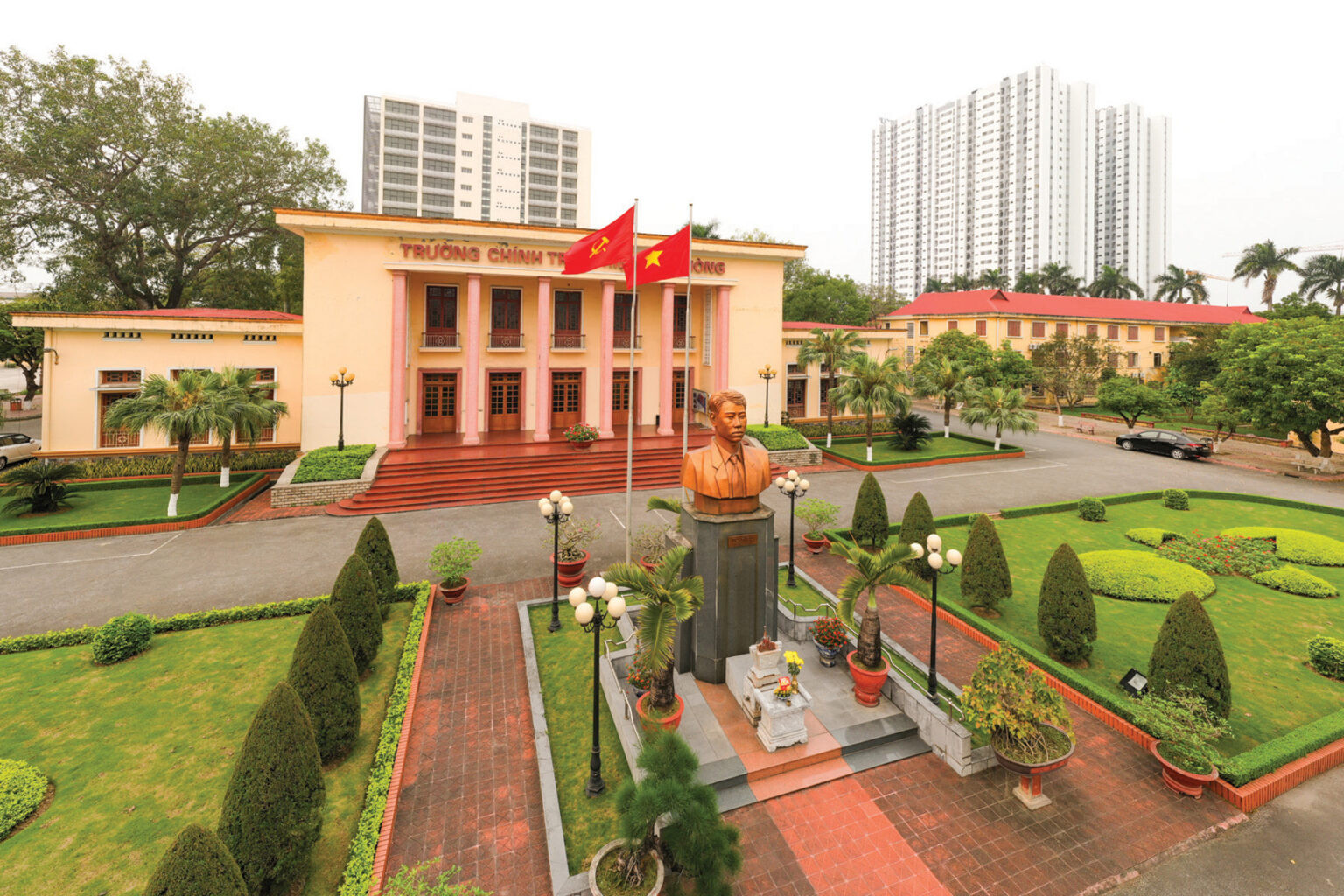 |
| To Hieu Political School in Hai Phong city. |
Only when placed in the specific historical context, under the extremely difficult and complicated conditions of the revolutionary movement in the face of the fierce repression of the French colonialists, can we fully see the pioneering role, organizational talent and great contributions in organizing the Party and building the revolutionary movement in our country of Comrade To Hieu. With his very effective practical activities, he contributed significantly to preparing the basic conditions for the Party and the revolutionary movement in our country to enter the movement stage towards the August Revolution in 1945, leaving the Party with many experiences of profound theoretical value and practical significance.
The 110th anniversary of the birth of Comrade To Hieu (1912 - 2022), a steadfast and indomitable communist who fought and sacrificed his whole life for the revolutionary cause of the Party, for the independence and freedom of the nation, and the happiness of the people, is an opportunity for us to review his life of activities and his great contributions to the Party and the Vietnamese revolution. At the same time, through that, we can propagate and educate about patriotism and the shining example of revolutionary morality of previous generations of revolutionaries, so that today's generations can learn and follow. Under the light of Marxism-Leninism and Ho Chi Minh's thought, the cause of building socialism in our country, especially the renovation initiated by our Party, has clearly defined its roadmap and achieved many great victories of historical significance.
Amidst the myriad of difficulties on the road ahead, we can find the pioneering spiritual value in the example of communist To Hieu to bring the renovation initiated and led by our Party to its final destination.

